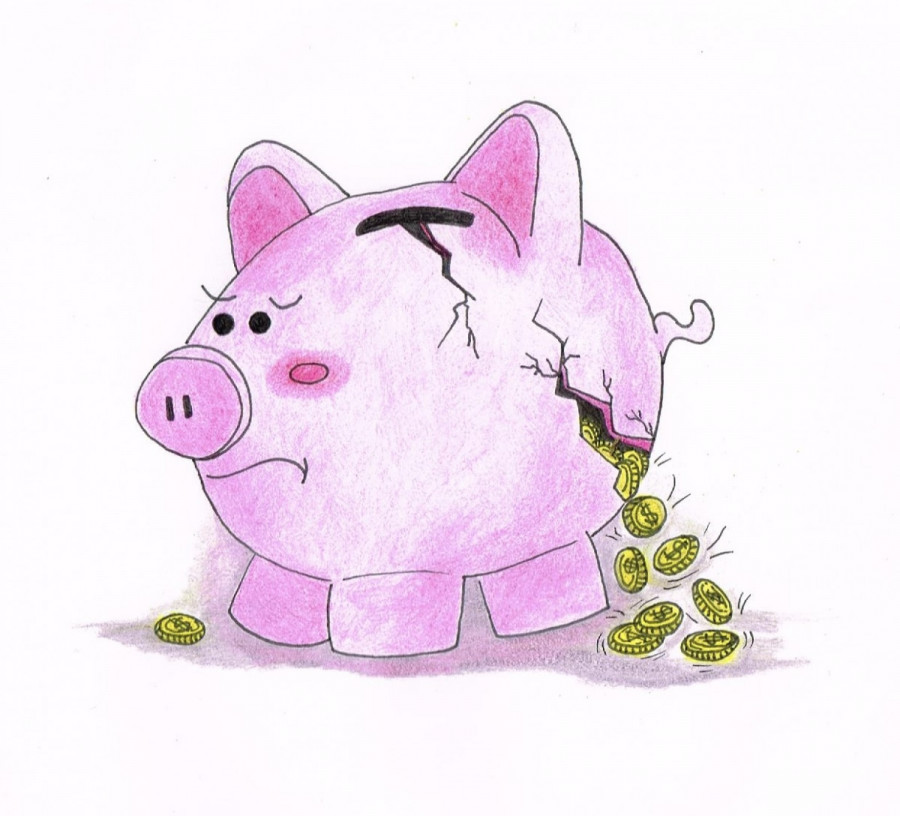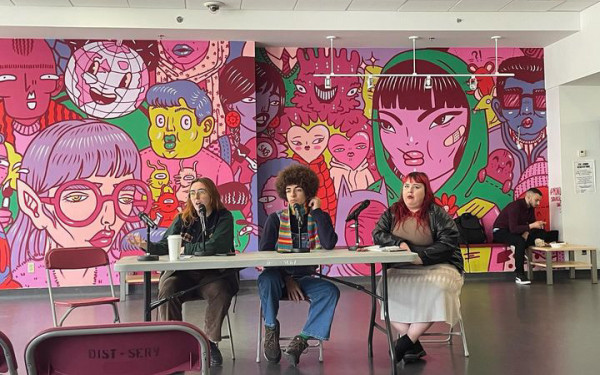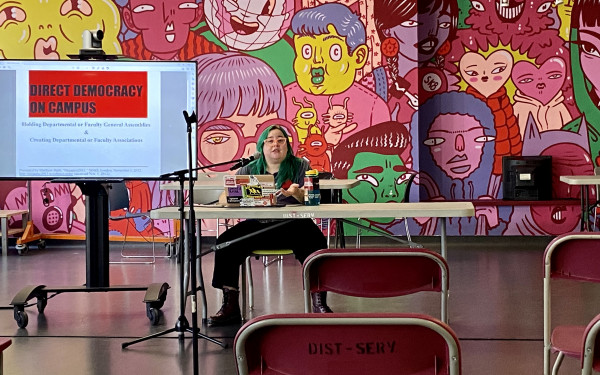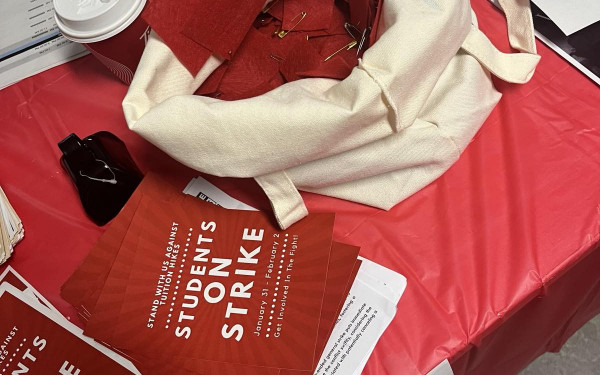Tuition hikes threaten fee levy groups’ funding
With predicted lower enrollment rates, student services and fee levy groups are set to lose funding in the coming years
Concordia student groups and unions are all funded, at least in part, with a fee levy collected from student’s tuition, based on the number of credits they are taking.
The government’s proposed tuition hikes are suspected to lead to a drop in enrollment and, by extension, a drop in funding for these groups.
Applications from out-of-province students are down 30 per cent this year at Concordia due to the Coalition Avenir Québec’s (CAQ) proposed tuition hikes. Concordia has said that it expects to lose $62 million in revenue per year for the following four years and that departments are expecting to lose 65 to 90 per cent of their out-of-province student population.
Angelica Antonakopoulos, the Arts and Science Federation of Associations’ (ASFA) academic coordinator, said that it’s hard to plan next year's budget considering all of the uncertainty.
“If the 60 per cent loss in enrollment of out-of-province and international students holds true, we're set to lose anywhere from $20,000 to $100,000, which is a lot. That's a huge variation,” Antonakopoulos said.
ASFA is mandated to organize events, give out awards and fund the department-specific member associations of the arts and science department. As a non-profit group, they aim to use all of their budget every year, but the hike has forced them to cut back on spending.
“What we are primarily concerned about is our funding is going to gradually decrease by any capacity as a result of this tuition increase, and inflation is as high as it's ever been historically. So it's going to get more expensive for us to keep the lights on,” said Antonakopoulos. “Chances are, we'll just have to thin out what we can offer and the diversity of what we can offer in general.”
ASFA isn’t the only association on campus worried about the effect of the tuition hikes on fee-levy groups. Hannah Jackson, the Concordia Student Union’s (CSU) external affairs and mobilization coordinator, is concerned about what Concordia’s climate of austerity could mean for student life.
“Even if you're not an international or out-of-province student, you're going to risk cuts to your classes and you might see cuts to the services that the Concordia administration provides, such as Concordia Health Services. It's not just a problem if you're only an out-of-province student or an international student,” Jackson said.
The CSU attempts to provide salary increases to personnel, budget increases for clubs when requested, and grants for grassroots community groups. These could cease if the tuition hike comes into effect. “We have a very finite source of income, which is student tuition, and if that is going to decrease, then we don't really have any ways to keep growing, to develop new services and improve the services that we already have," Jackson said.
The Centre for Gender Advocacy is a Concordia fee-levy group that provides services like LGBTQIA2S+ resources and information as well as pay-what-you-can gender-affirming gear.
Rayah Ghosh, the advocacy coordinator, said that while the centre does receive grants on top of a fee levy, they will still be affected. “I think a large part of it is just the tangible resources we give out. Workshops we can still do because we have trained officials within our organization that could do it on a volunteer basis from time to time, but I think the main concern would be tangible resources like binders and health care,” Ghosh said.
“Tuition hikes affect all of us, but they are targeted at the most vulnerable students in our community,” said Jackson. “The diversity and cultural richness of Montreal and Quebec are something that makes this place an amazing place to live, and people deserve to be able to afford to come here—not just rich people—and they deserve to be able to stay.”
The CAQ’s proposed tuition hikes for out-of-province students would see their fees go up 30 per cent, at a minimum $12,000 a year. As for international students, they will have to pay a minimum of $20,000 dollars a year, with $3,000 allocated to the government.
This article originally appeared in Volume 44, Issue 10, published February 13, 2024.







